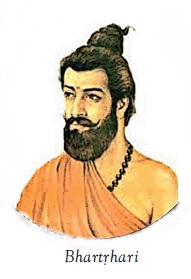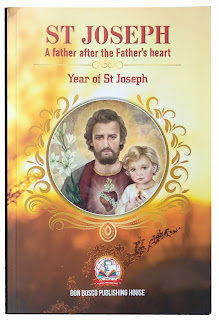Bhartṛhari and the Veda
David Carpenter, “Bhartṛhari and the Veda” in Texts in Context, ed. Jeffrey Timm, Delhi: Sri Satguru
Publications, 1997, 17-32.
Bhartṛhari (5th
cy CE) is a grammarian and philosopher of language. He has written a good
number of commentaries on classical Indian texts. In this article, the author
focuses on Bhartṛhari interpretation of the Veda.
Interestingly, he begins by pointing out that the Western
and Indian approach to hermeneutics is markedly different. They neither ask the
same questions nor do they use the same methods/canons of interpretation. This
seems to be a pretty obvious point and it is kind of ironical that in order to ‘prove’
it he distinguishes between Ricoeur’s and Bhartṛhari’s
approach to a text. (18-19)
Hermeneutics in a religious context must be
understood as interpretation of religious literature with the aim of bringing
to light their contemporary significance for the religious community. Bhartṛhari is
greatly influenced by the Mīmāṁsā school and adopts
their interpretation theory. (20)
He asserts that Vedic sentences don’t give
information on Brahman rather they have practical significance: they
provide guidelines for how one must live and what one must do. Any
contradiction that one finds in these passages is due to the vikalpa
(imagination) of the author and not due to any inherent inconsistencies or
faults of the Vedas. The heart of Vedic revelation is praṇava –
the sacred syllable OṂ. This is the sarvavādāvirodhinā, which literally translates as ‘not opposing any
doctrine’. Thus, he suggests that the “meaning” of the Veda does not lie so
much in its injunctions and narratives as much as it lies in the very language through
which it is expressed. He understands language itself to be an “imitation” of Brahman.
(21)
Bhartṛhari is of the opinion that the sole genuine unit of
language is the sentence and not the word. He points out that words alone are
hardly ever uttered but always within sentences. Sentences, in their turn, are
not uttered simply because one is trying to refer to something/s but because
one is trying to ‘do’ something. This idea is quite similar to the ‘Speech Acts
Theory’, J. L. Austin will speak of much later. Since sentences intend action
the verb becomes the key factor. Nouns and other parts of the sentence are all
auxiliary to the verb. In fact, they always encircle the verb and even take
meaning from it. This action tendency of sentences which he perceived, he
called kārakas, literally “doers”. This theory is developed in his
Sādhanasamuddeśa, or “Discussion
of Means” which can be found in the third book of the Vākyapadīya. (21-22)
Bhartṛhari notes that the Veda was not always a written text.
It came to be written at a particular period of time. Basically, the Veda
reveals dharma (right behaviour and sound religious practice). Now,
since it lacked textuality in its origin, it cannot be understood anymore as
something that has existence independent of the community which captured it in
the written word. Hence, the Veda has a very strong practical and social
component. Something formed part of it simply because that was the way the
Brahmins saw it. For this reason, Bhartṛhari never addresses the Veda as a text or set of texts
but simply as a mode of dharma. (25-26)
Bhartṛhari has an interesting view on hermeneutics with regard
to the Vedas. He remarks that one does not understand the Veda; one becomes or
enacts it. (28) I think this is an interesting point, not only with regard to
the Vedas but to religious literature in general. For the common person,
knowing the background, understanding the original sources, or the precise
meaning or nuances of the texts and their translations might seem too prosaic.
Rather, living out the message of the text is far more fruitful and meaningful
an exercise then breaking ones head over matters of linguistics and semantics. Thus,
though his hermeneutics is specific to the Vedas it holds some universal meaning
as well, as I have just pointed out.





Comments
Post a Comment